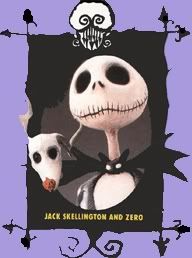Defining an explicit ideology for the gothic subculture is difficult for several reasons. First is the overwhelming importance of mood and aesthetic for those involved. This is, in part, inspired by romanticism and neoromanticism. The allure for goths of dark, mysterious, and morbid imagery and mood lies in the same tradition of Romanticism's gothic novel. During the 19th century, feelings of horror, and supernatural dread were widespread motifs in popular literature; The process continues in the modern horror film. Balancing this emphasis on mood and aesthetics, another central element of the gothic is a deliberate sense of camp theatricality and self-dramatization; present both in gothic literature as well as in the gothic subculture itself.
Goths, in terms of their membership in the subculture, are usually not supportive of violence, but rather with tolerance. Many in the media have incorrectly associated the Goth subculture with violence, hatred of minorities, white supremacy, and other acts of hate. However, violence and hate do not form elements of goth ideology; rather, the ideology is formed in part by recognition, identification, and grief over societal and personal evils that the mainstream culture wishes to ignore or forget. These are the prevalent themes in goth music.
The second impediment to explicitly defining a gothic ideology is goth's generally apolitical nature. While individual defiance of social norms was a very risky business in the nineteenth century, today it is far less socially radical. Thus, the significance of goth's subcultural rebellion is limited, and it draws on imagery at the heart of Western culture. Unlike the hippie or punk movements, the goth subculture has no pronounced political messages or cries for social activism. The subculture is marked by its emphasis on individualism, tolerance for diversity, a strong emphasis on creativity, tendency toward intellectualism, a dislike of social conservatism, and a mild tendency towards cynicism, but even these ideas are not universal to all goths. Goth ideology is based far more on aesthetics than ethics or politics.
Goths may, indeed, have political leanings ranging from left-liberal to anarchist, but they do not express them specifically as part of a cultural identity. Instead, political affiliation, like religion, is seen as a matter of personal conscience. Unlike punk, there are few clashes between political affiliation and being "goth".
For the individual goth, involvement with the subculture can be extremely valuable and personally fulfilling, especially in creative terms. However, it also can be risky, especially for the young, partly because of the negative attention it can attract due to public misconceptions of goth subculture. The value that young people find in the movement is evidenced by its continuing existence after other subcultures of the eighties (such as the New Romantics) have long since died out.
Goths, in terms of their membership in the subculture, are usually not supportive of violence, but rather with tolerance. Many in the media have incorrectly associated the Goth subculture with violence, hatred of minorities, white supremacy, and other acts of hate. However, violence and hate do not form elements of goth ideology; rather, the ideology is formed in part by recognition, identification, and grief over societal and personal evils that the mainstream culture wishes to ignore or forget. These are the prevalent themes in goth music.
The second impediment to explicitly defining a gothic ideology is goth's generally apolitical nature. While individual defiance of social norms was a very risky business in the nineteenth century, today it is far less socially radical. Thus, the significance of goth's subcultural rebellion is limited, and it draws on imagery at the heart of Western culture. Unlike the hippie or punk movements, the goth subculture has no pronounced political messages or cries for social activism. The subculture is marked by its emphasis on individualism, tolerance for diversity, a strong emphasis on creativity, tendency toward intellectualism, a dislike of social conservatism, and a mild tendency towards cynicism, but even these ideas are not universal to all goths. Goth ideology is based far more on aesthetics than ethics or politics.
Goths may, indeed, have political leanings ranging from left-liberal to anarchist, but they do not express them specifically as part of a cultural identity. Instead, political affiliation, like religion, is seen as a matter of personal conscience. Unlike punk, there are few clashes between political affiliation and being "goth".
For the individual goth, involvement with the subculture can be extremely valuable and personally fulfilling, especially in creative terms. However, it also can be risky, especially for the young, partly because of the negative attention it can attract due to public misconceptions of goth subculture. The value that young people find in the movement is evidenced by its continuing existence after other subcultures of the eighties (such as the New Romantics) have long since died out.


No comments:
Post a Comment